Youth v Canada: Pilot-Testing a Climate Change Mock Trial with High School and University Students

Stepan Wood
Professor and Canada Research Chair in Law, Society and Sustainability,
Jun 17, 2024
Climate change has a disproportionate impact on young people, partly because they are more vulnerable to its effects, partly because they will experience them longer into the future. Aware of this fact and frustrated with the lack of urgent action to combat climate change, youth around the world are taking goverments to court, claiming that they are violating young people’s rights to life, health, equality and a healthy environment by contributing to the climate crisis.
On April 30, 2024, the Centre for Law and the Environment gave local high school students a glimpse into this world of youth climate litigation by organizing a mock trial at Magee Secondary School in Vancouver, British Columbia. We pilot-tested the mock trial a second time on June 3, 2024 with a UBC undergraduate geography field course.
Simulating Real World Climate Litigation
The "Youth v Canada" mock trial is a role-playing activity in which students learn about youth climate change lawsuits in Canada and beyond, and simulate a trial of a fictional – but realistic – climate change case brought by a group of BC youth against the Government of Canada. The lawsuit alleges that the government’s policies, laws, decisions and other conduct violate their constitutional rights to life, security of the person and equality by contributing to climate change and exacerbating the risks to young people’s lives and health.
Divided into two opposing teams—Team Youth and Team Canada—participating students engage in a battle of evidence and argument. Team Youth is made up of students playing the parts of the youth plaintiffs, their scientific experts and their lawyers. Team Canada comprises the government’s scientific experts and lawyers. A third team—The Court—plays the role of the trial judge who presides over the proceedings, hears the evidence and arguments, rules on objections and decides the case. A package of shared instructions and team-specific confidential role instructions give students the information they need to prepare for the mock trial.
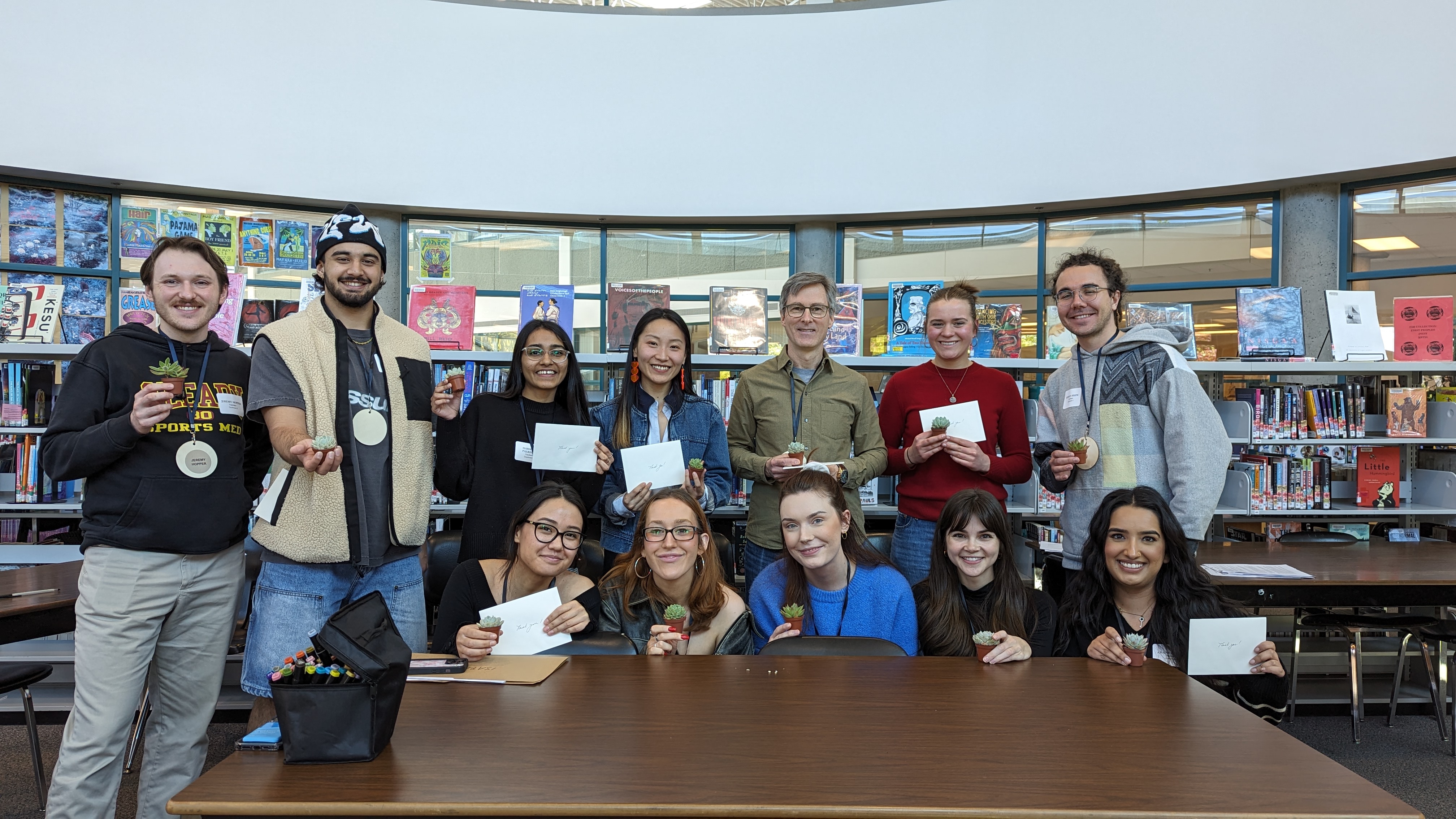
The mock trial was created by CLE Director Stepan Wood and was delivered with the help of JD and LLM student volunteers from the Allard School of Law. It was modelled after the La Rose youth climate case against the federal government and inspired by other real-world youth climate cases such as the Mathur lawsuit against the province of Ontario and the victorious Held case against the State of Montana, the world’s first youth climate case to go to a full trial with witnesses and cross-examination.
See You in Court!
The mock trial at Magee Secondary was a resounding success. Twenty-two students from Grades 8 to 12 took part, enthusiastically pouring their effort and creativity into learning and performing their roles with the help of the Allard team. Team Youth, saddled with the burden of proof, aimed to substantiate their claims through legal argument and the testimony of youth plaintiffs and expert witnesses. On the other side stood Team Canada, endeavoring to dismiss the lawsuit by countering the evidence presented with expert testimony of its own.
Team Youth painted a critical picture of Canada’s complicity in creating and exacerbating climate harms. Conversely, Team Canada sought to challenge the link between governmental actions and climate perils. Team Youth rested their case by urging the court to recognize a positive duty on the government to protect citizens from climate perils, While Team Canada insisted that the harm suffered by the plaintiffs, however severe, was not the government’s fault.
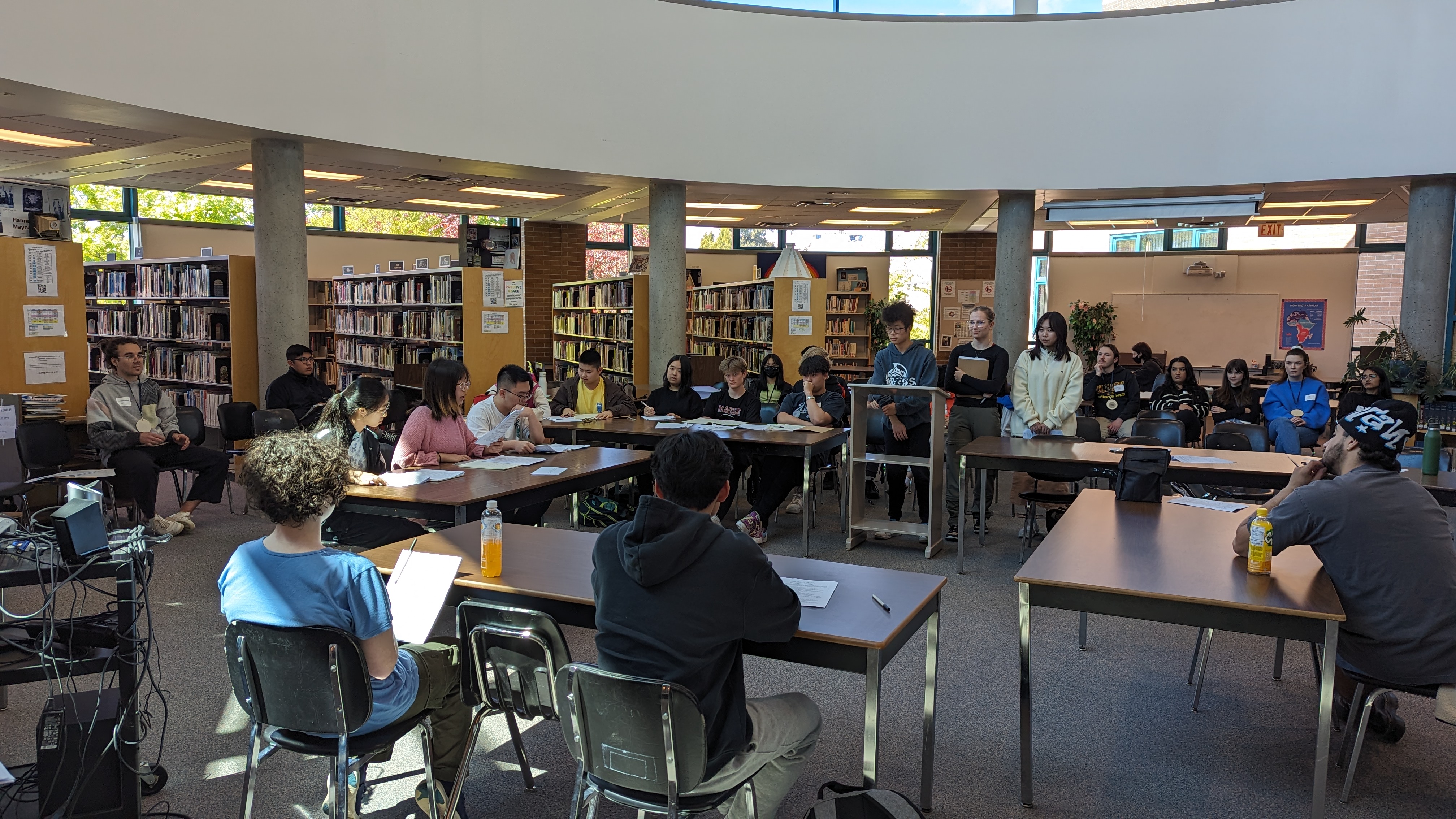
During witness testimony, the students got a taste of the legal labyrinth of leading questions, argumentative assertions and speculative questions and answers, as they called out “Objection!”, stated the nature of their objection, and their peers, acting as judges, ruled “Sustained” or “Overruled.” The students also got to deploy their rhetorical skills in delivering dramatic closing statements and final judgments.
As the mock trial drew to a close and the student judges retired to deliberate, the courtroom buzzed with anticipation. Ultimately, Team Youth emerged victorious. The judges ruled in their favour on every legal issue, to loud applause.
Global Youth Climate Activism
The mock trial at Magee Secondary School was a microcosm of a global movement. Around the world, from Argentina to Uganda, youth have filed lawsuits against governments and demanded accountability for their role in contributing to the climate crisis. These lawsuits not only seek legal remedies but also provide powerful platforms for raising awareness and mobilizing public support for climate action.
At the heart of the mock trial is a powerful message: youth are potent catalysts for change. More than a mere academic exercise, this mock trial is a testament to the power of youth to drive the pursuit of environmental justice and sustainability. In the corridors of Magee Secondary School we witnessed the stirrings of a new generation of changemakers, eager to confront the challenge of climate change.
The mock trial ended with the appearance of a surprise guest who galvanized the participants even further.
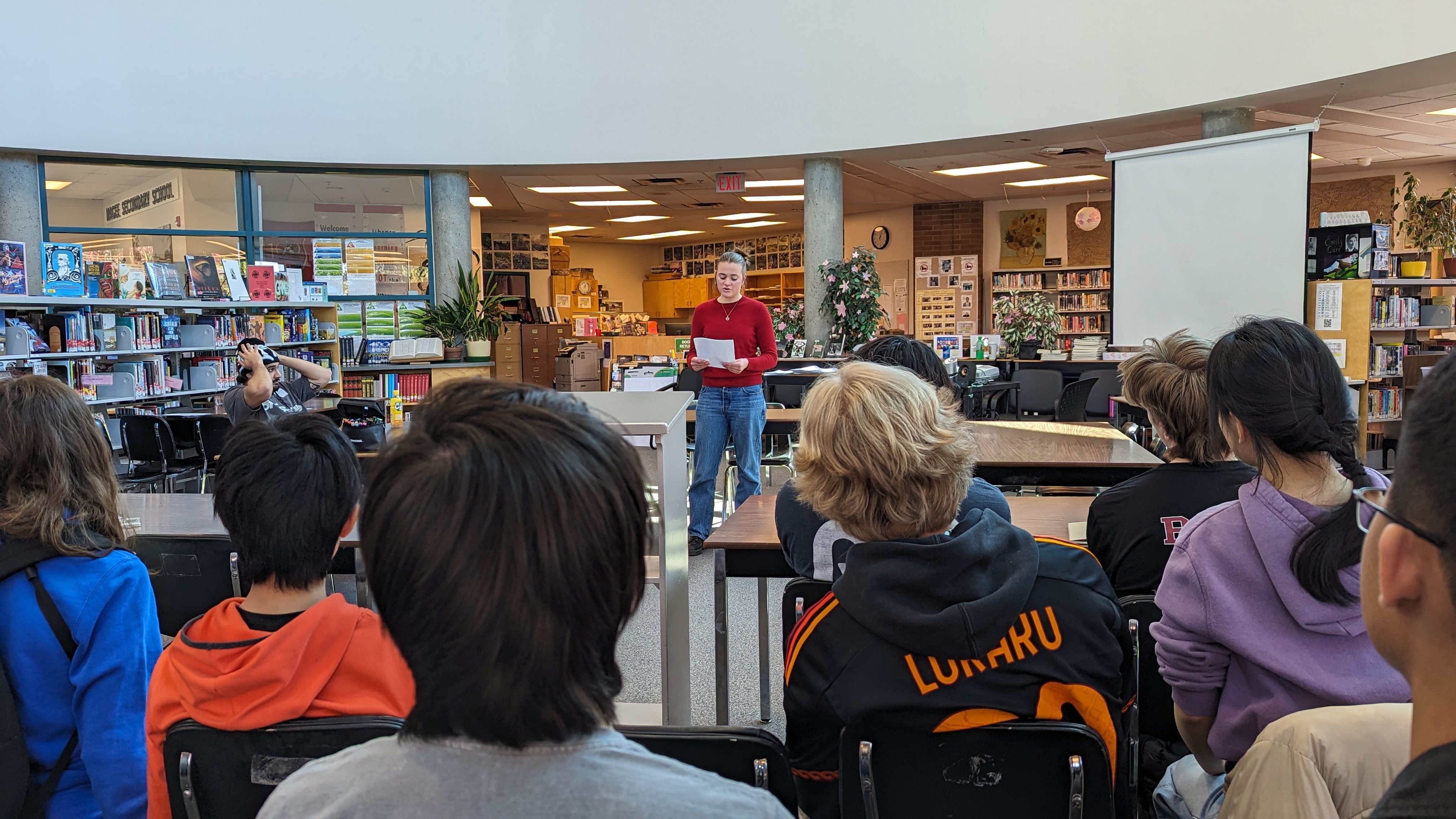
Zoe Grames-Webb, a plaintiff in the La Rose case who attends another Vancouver high school, spoke about her experience with climate change, environmental activism and suing the federal government. Her words resonated deeply with the students, who peppered Zoe with questions about her firsthand experience engaging in youth environmental activism and litigation. Zoe’s participation was facilitated by Our Children’s Trust, the organization behind several youth climate lawsuits in the US and Canada.
Towards Climate Justice, One Classroom at a Time
The mock trial was part of the Kimberley Foundation’s Mercury Rising initiative,

an immersive 2-day climate change learning program for students in Grades 8 to 12. The initiative aims to increase climate change literacy among high school students, change the prevailing narrative from doom and gloom to hope and solutions, deliver a message that youth are not alone in tackling the problem, and learn ways to engage, act and imagine so as to begin or continue climate positive lives. The Kimberley Foundation is a Vancouver-based charitable organization working to facilitate initiatives that inspire and stimulate positive and environmentally responsible action in youth, educators and communities.
We look forward to offering the mock trial in future versions of Mercury Rising.
Round 2: A UBC Geography Field Course
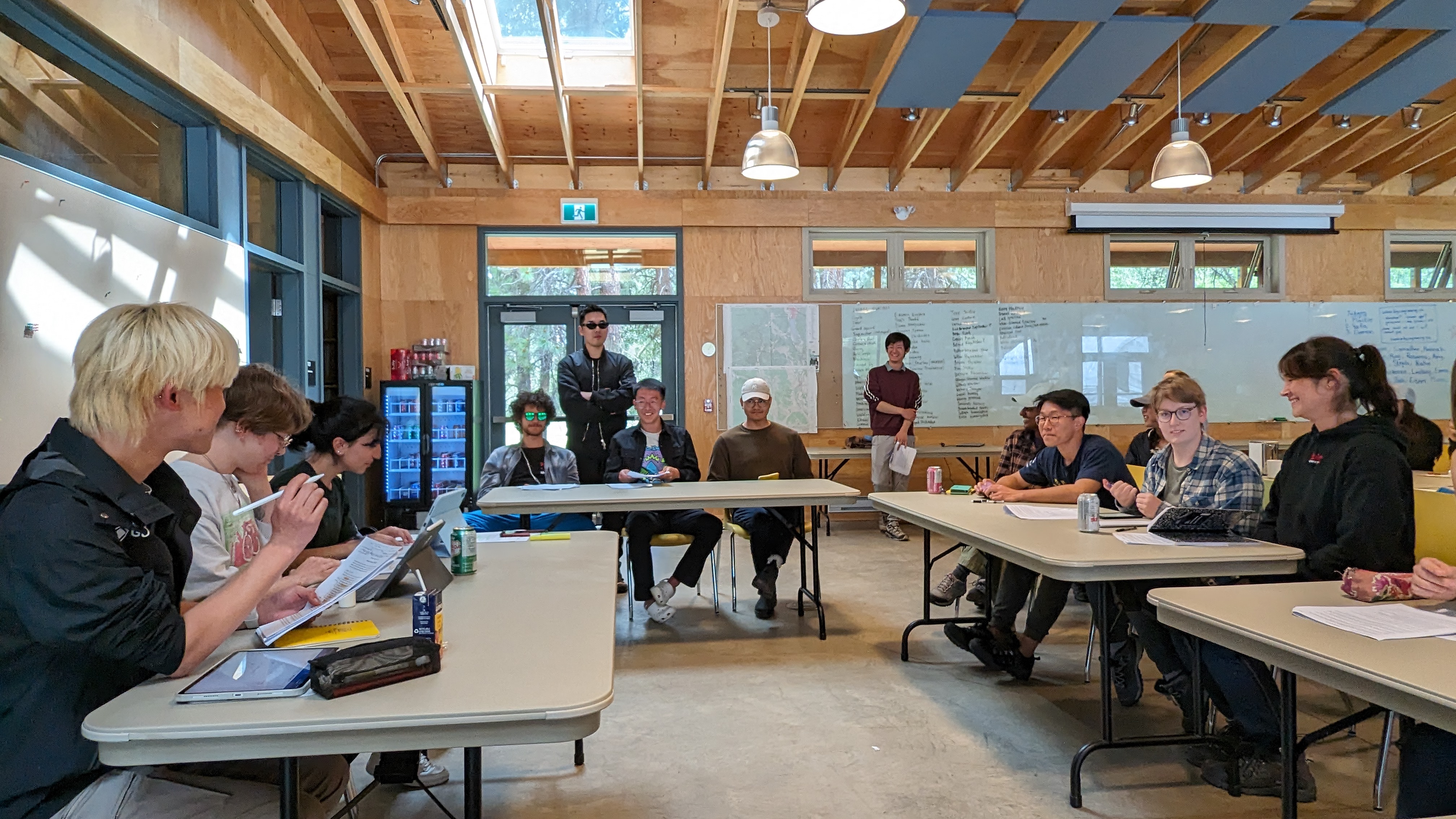
Professor Wood pilot-tested the mock trial a second time in the UBC Geography Department's Geographical Sciences Field Course at the UBC-Teck Geological Field Station in Oliver, BC on June 3, 2024.
19 undergraduate Geographical Sciences and Environment & Sustainability majors and two Master of Science students in Geography and Forestry played the parts of Team Canada, Team Youth and The Court. Once again, the students dove into their roles enthusiastically and grappled with the scientific, legal and political issues posed by the case. They also took some opportunities to dramatize the case in fun ways, including by surrounding the government's scientific witness with mock bodyguards wearing dark glasses, and by waving around an alien invasive plant species during closing arguments to symbolize the government's misconduct.
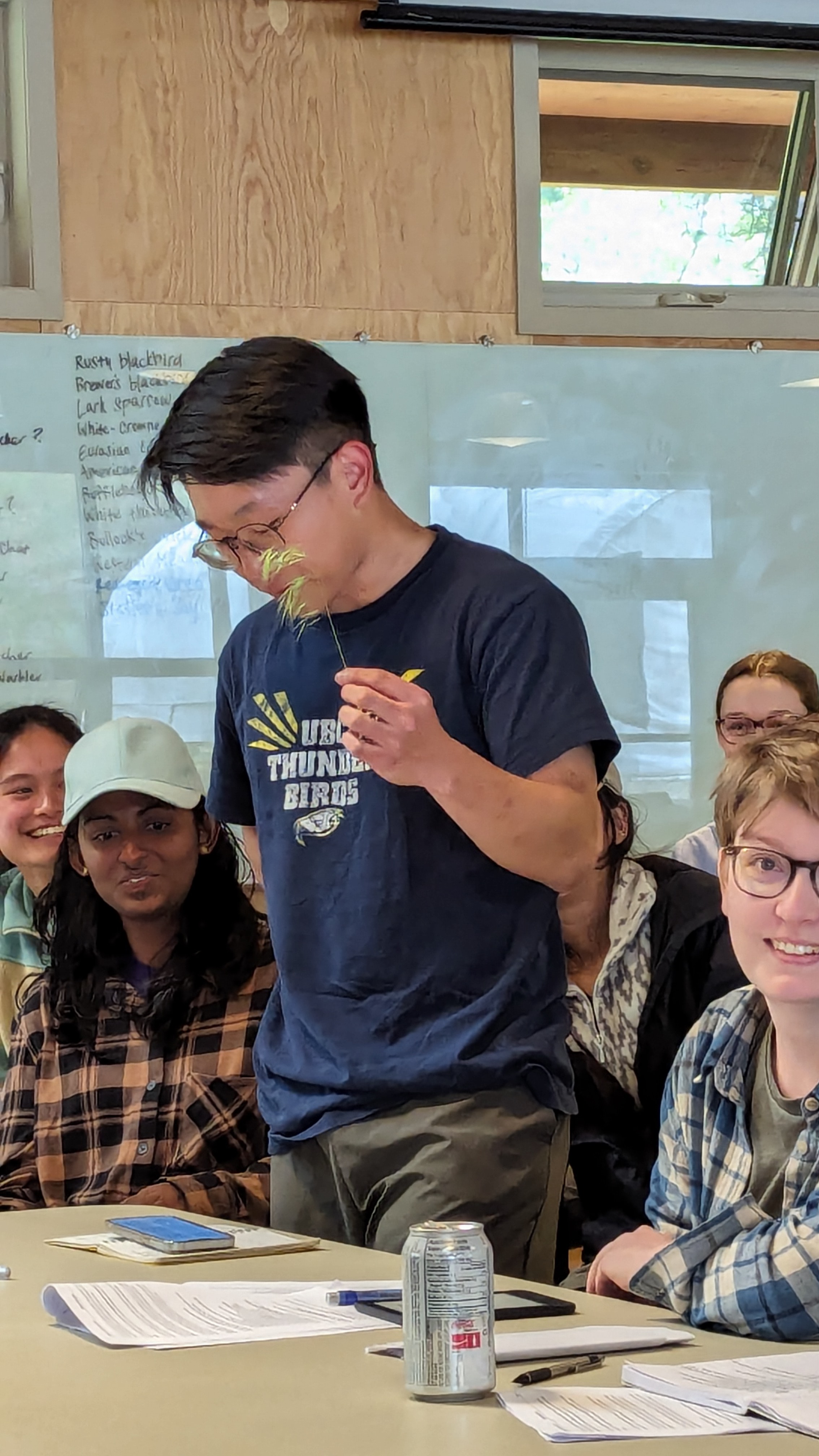
The outcome was the opposite of the Magee Secondary mock trial. The judges agreed with the plaintiffs that the government is exacerbating young people's risk of harm by contributing to climate change but found that the plaintiffs had not proved that the actual harms they have suffered were caused by climate change. On the bright side, however, they ruled that, if the plaintiffs had proved this crucial causal connection, the court would have had no hesitation ruling that the government was violating the plaintiffs' rights to life, health and equality.
The verdict was met by good-natured accusations of perjury, bribery and intimidation on the part of the government, with laughter all around.
On a more serious note, the outcome was a reminder that winning or losing a lawsuit often comes down to the specific evidence that the parties present to the court. A small but crucial gap in the evidence can cause the whole case to come crashing down.
An Open Educational Resource
Ultimately, we plan to turn the mock trial into a set of open educational resources available to educators across Canada, with different versions tailored for high school and postsecondary students.
Many youth are only dimly aware of the workings of the court system and completely unaware of youth climate litigation against governments. Learning activities like this mock trial can help open young people’s eyes to the power of youth to leverage the legal system in pursuit of justice and accountability on some of the most urgent issues facing humanity.

- Centre for Law and the Environment


